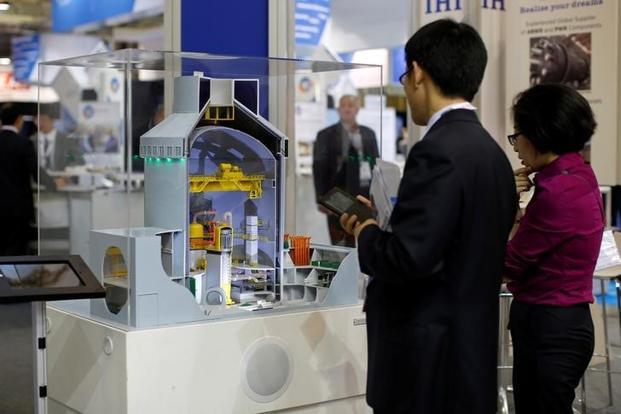
Washington: Toshiba Corp.’s Westinghouse Electric and India are in “advanced discussions” for the company to build six nuclear reactors there, the country’s ambassador to the United States said on Wednesday, ahead of Indian Prime Minister Narendra Modi’s planned visit to Washington next week.
A deal with Westinghouse would be the first such contract reached under the 2008 US-India civil nuclear accord.
“There is a very detailed and advanced negotiation between Westinghouse and India,” Ambassador Arun Singh told reporters. “The issues that remain to be worked out are related to cost and financing.”
Progress on the deal to build six AP-1000 nuclear reactors is one of the key developments anticipated during the 7-8 June visit by Modi to Washington, where he will be hosted by President Barack Obama for a final summit before the US presidential election in November. Modi will address both houses of Congress.
The US and India agreed in 2008 to cooperate in the civil nuclear arena, but there have been no agreements yet to build any plants.
Reuters reported on Tuesday that Westinghouse and India reached a breakthrough after officials said it will relocate the planned project in Andhra Pradesh. The original site proposed for the multi-billion-dollar project, in Modi’s home state of Gujarat, faced local opposition.
Another obstacle had been to bring India’s liability rules into line with international norms, which require the costs of an accident to be channelled to the operator rather than the maker of a nuclear power station.
That issue had been largely resolved to the satisfaction of the US government in January 2015 after the US and India reached a “breakthrough understanding” on nuclear cooperation.
Singh told reporters “to the best of my knowledge” insurance was no longer an issue in the discussions.
Westinghouse had hoped to clinch a deal to build six nuclear reactors in India by the end of March, during Modi’s last Washington trip to attend a global nuclear summit.
US lawmakers ratified the civil nuclear accord three years after it was struck in 2005, as part of an attempt to deepen the strategic relationship with India, but have expressed growing dismay over its failure to yield follow-on deals for US-based reactor makers.